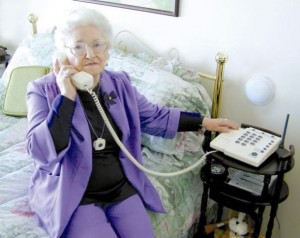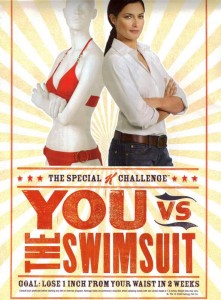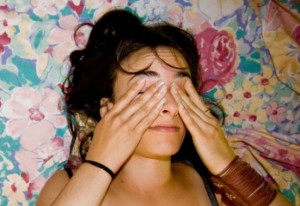June 19th, 2012 by Dr. Val Jones in Health Policy, Opinion
7 Comments »
 Along with the invention of smart phones, an entire medical mobile application (app) industry has cropped up, promising patients enhanced connectivity, health data collection, and overall care quality at lower costs. Last year the FDA put a damper on the app industry’s quick-profit hopes by announcing that it intends to regulate certain medical apps as medical devices. In other words, if the app is used to connect with a medical device or to turn a smart phone into such a device (whether it can check your blood sugar, blood pressure, heart rhythm, etc. or suggest diagnoses), it must undergo safety and efficacy checks by the FDA before it can be brought to market. That process is likely to inflate app development costs exponentially, thus creating a chilling effect on the industry.
Along with the invention of smart phones, an entire medical mobile application (app) industry has cropped up, promising patients enhanced connectivity, health data collection, and overall care quality at lower costs. Last year the FDA put a damper on the app industry’s quick-profit hopes by announcing that it intends to regulate certain medical apps as medical devices. In other words, if the app is used to connect with a medical device or to turn a smart phone into such a device (whether it can check your blood sugar, blood pressure, heart rhythm, etc. or suggest diagnoses), it must undergo safety and efficacy checks by the FDA before it can be brought to market. That process is likely to inflate app development costs exponentially, thus creating a chilling effect on the industry.
I actually think that FDA oversight is a good thing in this case, since it could protect patients from potentially misleading health information that they might use to make treatment or care decisions. But more importantly, I wonder if a lot of this fuss is moot for the largest, sickest, segment of the U.S. population?
For all the hype about robo-grannies, aging in place technologies, and how high tech solutions will reduce healthcare costs, the reality is that these hopes are unlikely to be achieved with the baby boomer generation. I believe that the generation that follows will be fully wired and interested in maximizing all that mobile health has to offer, but they’re not sick (yet) and they’re also not the proverbial “pig in the python” of today’s healthcare consumption.
I’m not saying that mobile health apps have no role in caring for America’s seniors – their physicians and care teams use tablets and smart phones, their kids do too, and a small percent of seniors may adopt these technologies, but I’m a realist when it comes to massive adoption by boomers themselves. Wireless connectivity, texting, personal digital health records, and asynchronous communication is just not in their DNA. Take away a teenager’s smart phone and he or she is likely to be completely flummoxed by reality. Now give that phone to a baby boomer and the flummoxing will be roughly equivalent, but centered upon the device. The teen can’t live without the constant phone/internet connection, and the senior is overwhelmed by the lack of human interface and unfamiliar menus.
What makes me so sure of my pronouncements? I just spent a month making house calls to almost 70 different Medicare Advantage members in rural parts of this country. And I can tell you that almost none of them used any sort of smart phone app to manage their health. These “odd creatures” actually enjoyed face-to-face human contact, they used their phones almost exclusively to talk to people (not surf the Internet), and they took hand-written notes when it was important for them to remember something. They even had paper calendars that they used to schedule their physician appointments and keep records of their medications and procedures. How “weird” is that?!
When I asked one of the seniors if she’d be interested in using a cell phone to check her blood pressure and have that automatically uploaded to her doctor’s office she replied,
“I’m too old to learn that stuff, dear. I’m lucky if I can find my slippers in the morning.”
The reality is that the average app user isn’t sick, and sick people don’t see a need for apps… yet. So our challenge is to meet seniors where they are instead of trying to change their habits. House calls are the best way I know of to get a full appreciation for individual quirks, compliance challenges, and health practices. If we are really serious about reducing healthcare costs in our aging population, it may take some low-tech solutions. As un-sexy as that may be, it’s time that we put down the iPhone and practiced some good old-fashioned medicine.
June 18th, 2012 by Dr. Val Jones in News, Opinion
No Comments »
 This news flash from the land of no surprises… The Journal of The American Medical Informatics Association recently published a study analyzing physician use of online technology. They hypothesized that certain types of physician specialists (such as dermatologists?) would display higher adoption rates of Internet-based communication technology (including things like social media platforms, podcasts, health apps, and widgets). But instead they discovered that adoption of these technologies was correlated with male gender, younger age, and practicing medicine in an academic hospital setting. In other words, young geeky dudes are the ones who are most likely to use techie medical widgets. Who’d have guessed?
This news flash from the land of no surprises… The Journal of The American Medical Informatics Association recently published a study analyzing physician use of online technology. They hypothesized that certain types of physician specialists (such as dermatologists?) would display higher adoption rates of Internet-based communication technology (including things like social media platforms, podcasts, health apps, and widgets). But instead they discovered that adoption of these technologies was correlated with male gender, younger age, and practicing medicine in an academic hospital setting. In other words, young geeky dudes are the ones who are most likely to use techie medical widgets. Who’d have guessed?
All kidding aside (and in case you hadn’t noticed, I’m a middle-aged, female physician who does not practice medicine in an academic setting. I have a blog, a podcast show, and was recently rated one of the top 10 MDs to follow on Twitter – so I must be a serious, category-blowing geek), this does have implications for healthcare. First of all, according to the US Department of Labor, ~80% of family healthcare decisions are made by women, and we consume a disproportionate amount of healthcare resources too. So in my opinion, healthcare technologies should be built by/for women and marketed to them more aggressively. Because if we’re trying to drive adoption of these things to streamline care, facilitate access, and reduce utilization, then we’ve gotta get the ladies on board too.
This study only confirms to me that we’re not there yet – guys are still more likely to use health apps/widgets, etc. But just as “progress” has been made in the video gaming industry (where only 12% of gamers were girls in 2001, that has grown to 40% in 2009) I think we can make similar gains in healthcare. And it’s for a much better cause than “getting really good at playing Grand Theft Auto.” Health apps have the potential to help people manage their diseases and conditions, avoid unnecessary trips to the doctor, and get them to the right healthcare provider at the right time.
So all you geeky (I say that with the utmost respect as a geek myself of course), male software developers out there – please befriend a few female physicians and work with us to get the tech trends moving in the right female direction. We’re all together in this game of life, right? 😉
June 18th, 2012 by Dr. Val Jones in Health Tips, Humor
No Comments »
 Are you one of those people who’s been singled out for constant attack by mosquitoes? Ever felt like the designated bug decoy at a party? It does seem that those pesky biting insects have a preference for certain individuals, so the real question is: why you?
Are you one of those people who’s been singled out for constant attack by mosquitoes? Ever felt like the designated bug decoy at a party? It does seem that those pesky biting insects have a preference for certain individuals, so the real question is: why you?
I wish there were a simple answer, but scientists have only isolated a few potential causes. It is likely that the full story remains to be elucidated – and may be related to small genetic variations in human odor. However, we do know that mosquitoes are attracted to carbon dioxide (that we expel as we breathe), and warmer skin temperatures. So I guess if you’re a heavy-breathing, hot-blooded person then you might need an extra layer of DEET? Or maybe hold your breath and wear a scuba suit when you’re in the presence of mosquitoes? Just kidding.
Interestingly, one small study notes that mosquitoes are more likely to land on people who are drinking beer. Since alcohol tends to cause vasodilation of blood vessels, the enhanced skin warmth could be a mosquito attractant. Others have postulated that tipsy people are slower at swatting off mosquitoes and are therefore more likely to be bitten.
My personal suspicion is that some of us react to mosquito proteins (injected when they bite us) more robustly than others. That means that while a mosquito’s bite may leave only a tiny, fleeting mark on one person, another might develop a large red hive that itches intensely. So if your immune system is hyper-reactive to mosquito proteins, you’re likely to suffer more from each bite that you receive. That alone could make you feel as if you’re being singled out by the nasty insects, when the reality is that others are being bitten just as frequently.
I guess the take home message here is that insect-repellent is still the best defense against mosquito bites, although some might argue that keeping a heavy-breathing, sweaty, beer-drinking guy nearby might provide an alternative decoy?
Enjoy your summer – and don’t scratch yourself to death!
June 15th, 2012 by Dr. Val Jones in News, Opinion
No Comments »
 Kellogg’s Special K cereal brand has long been known for its iconic slim woman in a red bathing suit. In a bold, Dove-soap-like new ad campaign, they have decided to feature “real women” – which apparently means women with larger BMIs – in red bathing suits. A Special K spokeswoman explains,
Kellogg’s Special K cereal brand has long been known for its iconic slim woman in a red bathing suit. In a bold, Dove-soap-like new ad campaign, they have decided to feature “real women” – which apparently means women with larger BMIs – in red bathing suits. A Special K spokeswoman explains,
“We want to encourage a responsible attitude when it comes to body image and to show that losing weight isn’t just about the way you look or a certain size you need to conform to, but more importantly about the way it makes you feel.
The fact that we are using real women for the first time of a variety of shapes and sizes is the perfect way to encourage women to think differently about losing weight and not just focus on the numbers on the bathroom scales.”
While I certainly appreciate the intent, I think there may be an even better way of achieving the objective of avoiding an over-emphasis on the bathroom scale. Instead of normalizing and accepting overweight bodies, why not show what women of the same percent body fat look like? That might be a healthier way to help us wrap our minds around the fact that (for example) 21% body fat on one woman might look very different than 21% body fat on another… Of course body fat alone is not a perfect measure of health – cardiovascular fitness doesn’t always correlate with it. But it’s a potential new way of normalizing healthy bodies rather than accepting a new overweight standard.
In fact, with the upcoming summer Olympic games, it might be fun to show the many faces of fitness. Women athletes at the peak of their performance look very different from one another. How about putting them all in red bathing suits?
Anyway, I thank Special K for opening the discussion – and I encourage us all to strive for optimal health. But as a physician, I believe that we shouldn’t accept overweight bodies as a new health standard. Good health does come in many shapes and sizes, but not in high levels of body fat.
June 15th, 2012 by Dr. Val Jones in Health Tips, Video
No Comments »
 I’m afraid this is one of those do-as-I-say, not-as-I-do blog posts. I must confess that when my eyes are itching from pollen exposure I can rarely resist rubbing them. So I absolutely empathize with those of you who also fall victim to the sweet lure of eye-rubbing when allergies flare. But as a responsible physician, I must tell you that rubbing those itchy eyes is like pouring water on a grease fire. It only makes things worse.
I’m afraid this is one of those do-as-I-say, not-as-I-do blog posts. I must confess that when my eyes are itching from pollen exposure I can rarely resist rubbing them. So I absolutely empathize with those of you who also fall victim to the sweet lure of eye-rubbing when allergies flare. But as a responsible physician, I must tell you that rubbing those itchy eyes is like pouring water on a grease fire. It only makes things worse.
Allergens (including foreign substances including pollen) like to stick to moisture-rich surfaces such as eye lids, eye balls, noses, and throats. Our bodies’ immune cells recognize these allergens and launch an attack to break down their proteins and remove them from the tissues. Specialized allergen removers, called mast cells, flock to areas that are heavy laden with pollen (or mold, pet dander, dust mite feces, etc.) Once they are near the allergens they break apart, spilling their acidic chemicals and histamines onto the invaders to break them down to remove them. These chemicals can cause stinging and itching sensations in the eyelid edges and other sensitive areas.
When we rub our eyes, we actually rupture mast cells at a faster pace due to mechanical traction. The result is that massive loads of acid and histamine are released into the already-sensitive tissues and the itching and burning often increases exponentially. So we rub harder!
As you can see, this is a vicious cycle that is best avoided. When your eyes become red, watery, and itchy from allergens the smartest course of action is to wash the area that has been exposed, flush the eyes with artificial tears, and try anti-histamine drops for itch relief. If you’re a contact lens wearer like me, try daily disposable lenses. A fresh pair every morning prevents possible allergens (that can cling to contacts from the day before) from being re-introduced into your eyes.
Let’s hope that pollen counts are more manageable next year, and until then we should all try our very best to remember the alternatives to eye-rubbing. I’m putting a bottle of artificial tears in my purse right now!
For more eye-allergy tips, please check out my recent interview with ABC News:
For further information about general eye health, please check out my Healthy Vision podcasts at Blog Talk Radio.
Disclosure: Dr. Val Jones is a paid consultant for VISTAKON® Division of Johnson & Johnson Vision Care, Inc.
 Along with the invention of smart phones, an entire medical mobile application (app) industry has cropped up, promising patients enhanced connectivity, health data collection, and overall care quality at lower costs. Last year the FDA put a damper on the app industry’s quick-profit hopes by announcing that it intends to regulate certain medical apps as medical devices. In other words, if the app is used to connect with a medical device or to turn a smart phone into such a device (whether it can check your blood sugar, blood pressure, heart rhythm, etc. or suggest diagnoses), it must undergo safety and efficacy checks by the FDA before it can be brought to market. That process is likely to inflate app development costs exponentially, thus creating a chilling effect on the industry.
Along with the invention of smart phones, an entire medical mobile application (app) industry has cropped up, promising patients enhanced connectivity, health data collection, and overall care quality at lower costs. Last year the FDA put a damper on the app industry’s quick-profit hopes by announcing that it intends to regulate certain medical apps as medical devices. In other words, if the app is used to connect with a medical device or to turn a smart phone into such a device (whether it can check your blood sugar, blood pressure, heart rhythm, etc. or suggest diagnoses), it must undergo safety and efficacy checks by the FDA before it can be brought to market. That process is likely to inflate app development costs exponentially, thus creating a chilling effect on the industry.

 This news flash from the land of no surprises… The Journal of The American Medical Informatics Association recently published
This news flash from the land of no surprises… The Journal of The American Medical Informatics Association recently published Are you one of those people who’s been singled out for constant attack by mosquitoes? Ever felt like the designated bug decoy at a party? It does seem that those pesky biting insects have a preference for certain individuals, so the real question is: why you?
Are you one of those people who’s been singled out for constant attack by mosquitoes? Ever felt like the designated bug decoy at a party? It does seem that those pesky biting insects have a preference for certain individuals, so the real question is: why you? Kellogg’s
Kellogg’s  I’m afraid this is one of those do-as-I-say, not-as-I-do blog posts. I must confess that when my eyes are itching from pollen exposure I can rarely resist rubbing them. So I absolutely empathize with those of you who also fall victim to the sweet lure of eye-rubbing when allergies flare. But as a responsible physician, I must tell you that rubbing those itchy eyes is like pouring water on a grease fire. It only makes things worse.
I’m afraid this is one of those do-as-I-say, not-as-I-do blog posts. I must confess that when my eyes are itching from pollen exposure I can rarely resist rubbing them. So I absolutely empathize with those of you who also fall victim to the sweet lure of eye-rubbing when allergies flare. But as a responsible physician, I must tell you that rubbing those itchy eyes is like pouring water on a grease fire. It only makes things worse.







